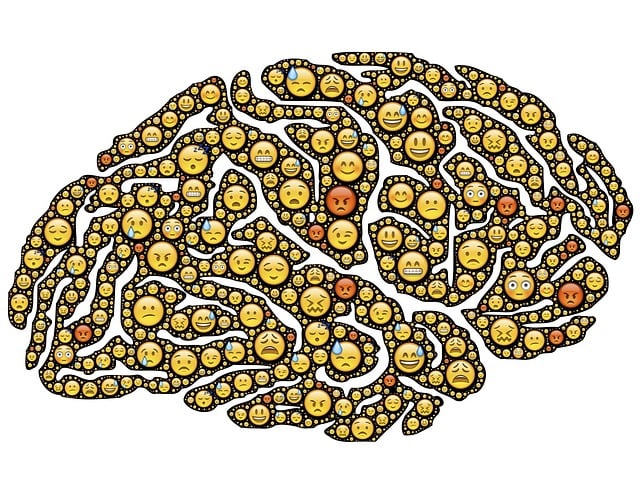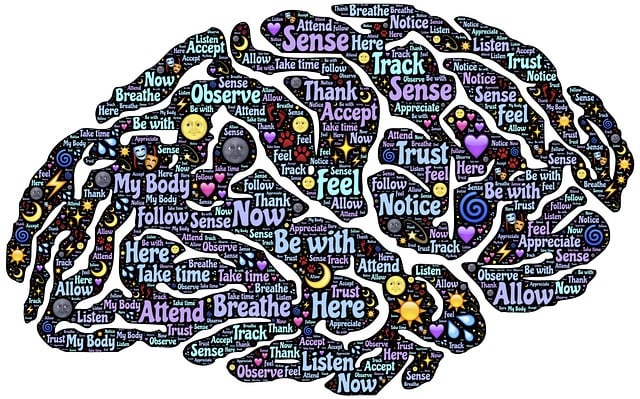Crisis Intervention Teams (CITs) are specialized healthcare groups that swiftly address emotional crises, psychiatric emergencies, or traumatic events using assessment, de-escalation, and support. These teams foster self-care routines, reduce mental illness stigma through education, and integrate conflict resolution techniques. Effective CIT training for therapists and clinicians includes understanding psychological mechanisms behind crises, practical tools for diverse client populations, emotional intelligence development, mood management strategies, and confidence-boosting exercises. Training methodologies like workshops, role-playing, multimedia resources, and case studies cater to various learning styles. These programs empower therapists with skills to address mental wellness challenges within organizations, prevent burnout, and enhance therapist-client relationships, leading to stronger therapeutic alliances and improved personal and professional relationships.
Crisis Intervention Team (CIT) training programs empower therapists, clinicians, and professionals to handle mental health crises effectively. This article explores the crucial role of CITs in saving lives and mitigating harm. We delve into the essential components of effective training, diverse methodologies, practical skills, and their profound impact on therapist-client relationships. Understanding these aspects is vital for enhancing therapy practices and ensuring better outcomes for those in need of mental health support.
- Understanding Crisis Intervention Teams: Role and Importance
- Essential Components of Effective Training Programs
- Types of Training Methodologies for Clinicians
- Practical Skills and Techniques to Be Covered
- Benefits and Impact on Therapist-Client Relationships
Understanding Crisis Intervention Teams: Role and Importance

Crisis Intervention Teams (CITs) are specialized groups within healthcare and mental health settings designed to provide immediate support during crises. These teams play a vital role in ensuring that individuals facing severe emotional distress, psychiatric emergencies, or traumatic events receive prompt and effective care. CIT members are typically composed of therapists, clinicians, nurses, and other trained professionals who collaborate to assess, de-escalate, and stabilize patients.
Understanding the importance of CITs goes beyond their immediate crisis response capabilities. By fostering a culture of self-care routine development for better mental health among team members, these programs also contribute to reducing the mental illness stigma through proactive education and empathetic support. Additionally, Conflict Resolution Techniques are often integrated into CIT training, enabling professionals to navigate challenging situations with enhanced de-escalation skills. Such initiatives not only benefit patients but also promote healthy work environments for therapists and clinicians.
Essential Components of Effective Training Programs

Effective crisis intervention team training programs for therapists and clinicians should encompass several key components to ensure optimal preparation. Firstly, these programs must focus on providing a deep understanding of the psychological mechanisms behind crises, offering practical tools for assessment and de-escalation techniques tailored to diverse client populations.
The curriculum should also prioritize the development of emotional intelligence, enabling professionals to recognize and manage their own emotions while fostering empathy with clients. Additionally, training in mood management strategies is crucial, equipping therapists with the skills to support individuals in regulating their affective states during high-stress situations. Moreover, confidence-boosting exercises can empower clinicians to respond calmly and decisively, creating a safe and supportive environment for those facing crises.
Types of Training Methodologies for Clinicians

Crisis intervention team training programs employ various methodologies to equip therapists-clinicians with effective tools for assisting individuals in distress. Interactive workshops and role-playing scenarios are widely used to simulate real-life crisis situations, allowing trainees to practice their skills in a controlled environment. This hands-on approach facilitates the development of coping skills and enhances emotional healing processes by providing immediate feedback and reflection opportunities.
Additionally, multimedia resources, case studies, and group discussions contribute to comprehensive training. Presenting diverse scenarios from public awareness campaigns development helps clinicians broaden their understanding of different crisis contexts. Such varied training methodologies cater to multiple learning styles, ensuring that therapists-clinicians are well-prepared to handle a wide range of crises effectively and empathetically.
Practical Skills and Techniques to Be Covered

Crisis intervention team training programs equip therapists and clinicians with practical skills and techniques essential for addressing mental wellness challenges within their organizations. These programs delve into various strategies, including crisis assessment tools, de-escalation techniques, and post-crisis support planning. Participants learn effective communication methods to foster an environment of safety and trust during high-pressure situations.
The curriculum often covers burnout prevention and stress management workshops, emphasizing the importance of self-care for healthcare professionals. Through role-playing scenarios and interactive exercises, therapists gain hands-on experience in managing acute crises while promoting resilience within their teams. These programs aim to enhance overall organizational mental wellness coaching by providing clinicians with the tools to support colleagues and navigate challenging situations with empathy and professionalism.
Benefits and Impact on Therapist-Client Relationships

Crisis intervention team training programs play a pivotal role in enhancing therapist-client relationships by equipping professionals with specialized skills to handle high-pressure situations effectively. These programs empower therapists and clinicians, enabling them to offer more profound support to individuals grappling with crises. By participating in crisis intervention training, therapists gain valuable insights into managing intense emotions, de-escalation techniques, and strategies for building rapport quickly, all of which contribute to stronger therapeutic alliances.
The benefits extend beyond improved crisis management skills. Therapists who undergo such training often report enhanced self-esteem and confidence in their abilities, leading to better stress management. This not only positively impacts their professional lives but also permeates into their personal relationships, fostering a sense of competence and resilience. As a result, therapists are better equipped to support clients in navigating mental wellness challenges, creating a safe and supportive environment conducive to healing and growth.
Crisis intervention team (CIT) training programs are invaluable tools that equip therapists and clinicians with the necessary skills to support clients during times of acute distress. By focusing on essential components, integrating diverse training methodologies, and mastering practical techniques, these programs enhance therapist-client relationships and foster more effective therapy for both professionals and their patients. In today’s world, where mental health crises are prevalent, CIT training is a game-changer, ensuring therapists are prepared to navigate complex situations with sensitivity and expertise.












